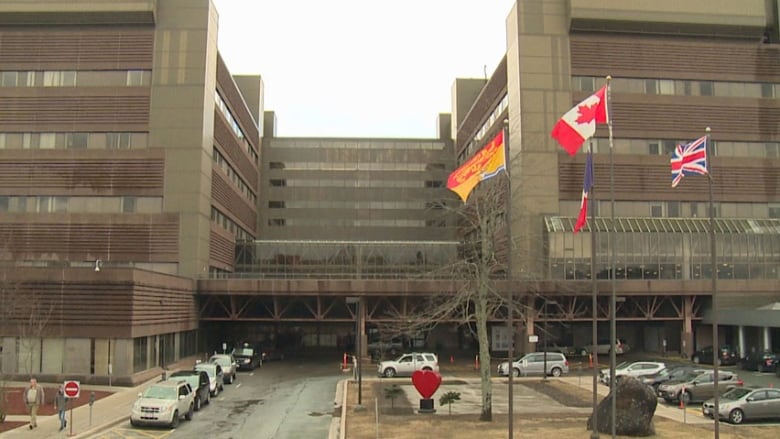Hospitals struggling to make a dent in beds taken by patients awaiting long-term care
Horizon Health Network head says 'new assessment process' on the way

Hospitals are struggling to reduce the number of people using hospital beds while awaiting long-term care, according to a regional health authority report.
Alternate level of care (ALC) patients represent one of the biggest barriers to improving New Brunswick's health-care system, Horizon Health Network CEO Margaret Melanson said at a press conference Thursday.
"This continues to be a challenge for us. So at this time there are some potential partnerships with the Department of Social Development. And we're looking forward to those hopefully moving forward in the months ahead," Melanson said.
"However, at this point in time, I will be honest that we continue to have our ALC challenges, and we need to really address this as expeditiously as possible."
Melanson made the comments as part of a quarterly update from the regional health authority.
She said ALC patients are currently using about 35 per cent of hospital beds meant for acute-care patients. That's despite Horizon hospitals all sitting at or over 100 per cent capacity, Melanson said.
The proportion of beds taken up by ALC patients has hovered around one third, with the same figure reported in earlier updates from the network in March and January.
The network's report says a "new assessment process for ALC patients" will soon be rolled out in the Fredericton area.
"This new process includes long-term care placement assessments, arranging interim home support services, and co-ordinating support services for patients transitioning back to the community or into long-term care facilities," the report says.
"Horizon will oversee assessments for placing patients in community care settings in the Fredericton area.... This new assessment process is expected to expand to other Horizon hospitals in the future."
The Department of Social Development was not immediately available to comment on Thursday.
Horizon previously asked the department to put four Fredericton-region hospitals in a "critical state," where ALC patients are temporarily given priority access to long-term care placement but its request was declined.
Physician recruitment
As part of the quarterly update, Melanson also reported 65 physicians have been recruited since March, for a net gain of 44.
She credited an "aggressive" marketing campaign and targeted communication with medical students across the country.
Of the 44, 19 physicians will be employed in Moncton, 22 in Saint John, one in the Fredericton and Upper River Valley region, and two in Miramichi.
Of the 65 new hires, 18 will work in family medicine and 47 in a specialty.

Horizon says six of those new family doctors will work in Moncton, 10 in Saint John and two in Miramichi.
Over the same period, 14 family physicians and seven specialists left the network. Horizon reports that four family doctors were lost in Moncton, seven in Saint John, and three in Fredericton and the Upper River Valley.
Horizon also reported higher wait times in emergency rooms for those triaged as urgent at 169 minutes, up from the last report and significantly over the network's target of 30 minutes.
Melanson said recruitment efforts should help bring that number down.
"Having those emergency departments fully staffed is obviously the best way for us to achieve the reduced wait times to the level that we require," she said.
"However, the other side of this is ... every day we have large numbers of individuals within our facilities who are admitted, require inpatient beds, and due to congestion issues and certainly the increase of ALC patients," she said. "We need to be better organized to have admitted patients move to patient units."













_(720p).jpg)


 OFFICIAL HD MUSIC VIDEO.jpg)
.jpg)



























































































